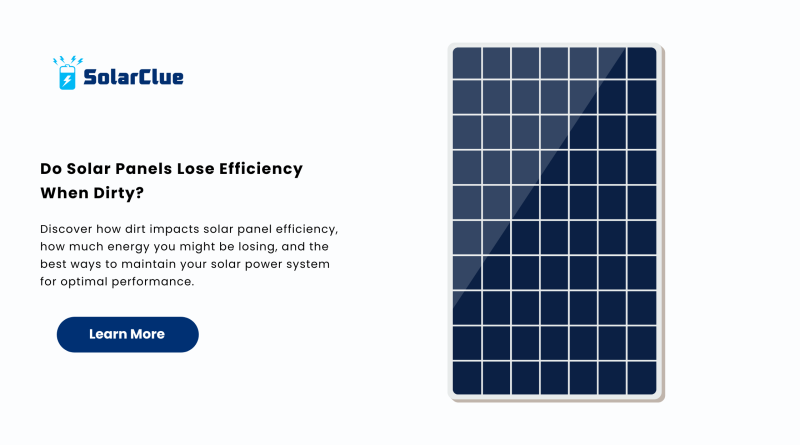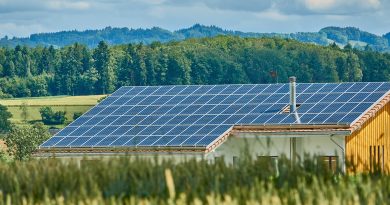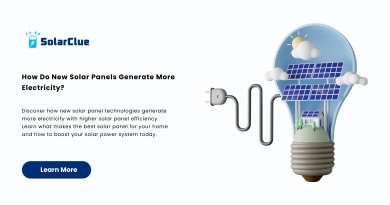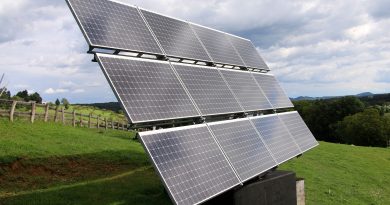Do Solar Panels Lose Efficiency When Dirty?
As more homeowners and businesses turn to solar energy to power their lives, understanding how to maintain that energy flow becomes increasingly important. One often-overlooked factor that can significantly impact your solar panel efficiency is dirt. From dust and pollen to bird droppings and rain residue, even the best solar panel can suffer a surprising drop in output if it’s not clean. So, do solar panels really lose efficiency when dirty? And if so, how much? In this blog, we’ll dive deep into the effects of grime on your solar power system, how to spot performance loss, and what you can do to keep your panels operating at peak performance year-round.
Table of Contents
- 1 Why Cleanliness Matters for Solar Panels
- 2 How Much Efficiency Do Dirty Solar Panels Lose?
- 3 Common Causes of Dirt Build-Up on Solar Panels
- 4 How to Know If Your Solar Panels Are Dirty
- 5 How Often Should You Clean Solar Panels?
- 6 Best Ways to Clean Solar Panels
- 7 Do All Panels Lose Efficiency Equally?
- 8 Does Rainwater Keep Panels Clean?
- 9 Can Cleaning Improve Performance?
- 10 The Financial Benefits of Clean Panels
- 11 How to Monitor Solar Panel Performance
- 12 Pro Tips to Enhance Solar Panel Efficiency
- 13 Final Thoughts
- 14 FAQs
Why Cleanliness Matters for Solar Panels
Yes, solar panels can lose efficiency when they’re dirty. A layer of dust, pollen, bird droppings, or other debris might not seem like much, but it can block sunlight from reaching the photovoltaic cells that generate electricity. This directly affects the system’s ability to produce solar power. Even with the best solar panel for home, if the surface is covered in grime, the output will drop.
When investing in a solar power system, it’s essential to understand that its performance depends heavily on exposure to sunlight. If that exposure is reduced—even by a small amount—the energy yield decreases, affecting your long-term savings and the return on your investment.
How Much Efficiency Do Dirty Solar Panels Lose?
The amount of energy loss varies depending on several factors such as your location, weather patterns, and the type of debris on your panels. In general, studies and field reports show that dirty solar panels can lose anywhere from 5% to 30% of their output.
In dry, dusty regions or urban environments with high air pollution, the efficiency drop tends to be higher. For example, in a heavily industrialized city, panels may require cleaning every few weeks to maintain maximum solar panel efficiency.
If you’re using the best solar panel, you still won’t be immune to this effect. Regular maintenance is key to preserving high performance in any solar energy system.
Common Causes of Dirt Build-Up on Solar Panels
There are several factors that can contribute to your solar panel getting dirty:
1. Dust and Pollution
Areas near construction zones or with high levels of vehicle traffic are more likely to have dust accumulation.
2. Bird Droppings
These are especially problematic because they can completely block sections of a panel, creating hot spots that reduce performance and may even damage the system.
3. Tree Sap and Pollen
In spring or summer, trees can drop sap or pollen that sticks to the panel surface and is not easily removed by rain.
4. Rainwater Residue
Ironically, while rain can help wash off loose dust, it can also leave mineral deposits and water spots that reduce clarity and energy absorption.
How to Know If Your Solar Panels Are Dirty
You might not notice the dirt visually at first, especially if it accumulates gradually. But there are some clear signs:
-
You notice a drop in your energy savings
-
Your monitoring system shows reduced output
-
You see visible dirt, stains, or bird droppings on the panels
-
You receive performance alerts from your solar power system
These are all indications that it’s time to give your panels a good cleaning.
How Often Should You Clean Solar Panels?
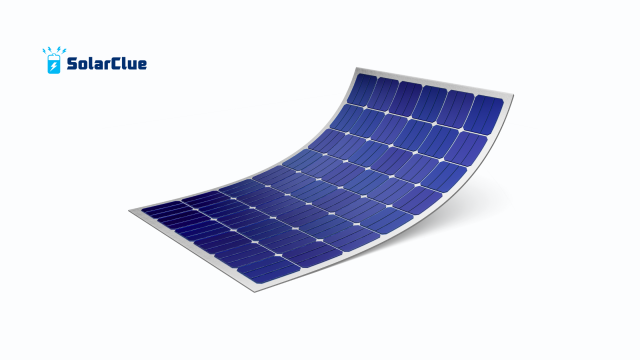
Typically, it’s recommended to clean your solar panel for home every three to six months. However, if you live in an area with high pollen, dust, or bird activity, you may need to clean them more frequently. Some homeowners check them monthly during dusty seasons to ensure maximum solar panel efficiency.
Best Ways to Clean Solar Panels
Here are some tips to help you safely and effectively clean your solar panels:
Use the Right Tools
Use a soft cloth, sponge, or squeegee. Avoid abrasive materials that could scratch the panel surface.
Avoid Harsh Chemicals
Plain water or mild soap is usually enough. Avoid using detergents or strong cleaners that could leave residues.
Choose the Right Time
Clean panels early in the morning or late in the evening when the panels are cool. Cleaning during hot sunlight can lead to cracking due to rapid temperature changes.
Hire a Professional
If your panels are on a high roof or are difficult to access, it’s safer to hire professional solar cleaners. They have the right tools and safety gear.
For professional solar panel maintenance services near you, visit solarclue.com and find certified technicians.
Do All Panels Lose Efficiency Equally?
No, some panels are more resilient to dirt than others. The best solar panels often come with anti-soiling or hydrophobic coatings that repel dust and water. However, these coatings are not foolproof. Over time, even premium panels will accumulate grime, especially if located in dusty or tree-covered areas.
That’s why regular inspections are essential, regardless of the panel type.
Does Rainwater Keep Panels Clean?
Rainwater helps, but it’s not a substitute for manual cleaning. While it may wash away loose dirt, it usually cannot remove sticky substances like sap or bird droppings. Additionally, mineral residues in rainwater can leave streaks that affect solar panel efficiency.
Think of rain like a quick rinse—it’s good, but it’s not enough for deep cleaning.
Can Cleaning Improve Performance?
Yes, and often significantly! Homeowners report a 10–20% increase in output after cleaning their panels. That can add up to substantial savings over time, especially if you rely heavily on your solar energy system.
If you’re unsure how much efficiency you’re losing, compare your current performance with past records or use monitoring apps included with your solar power system.
The Financial Benefits of Clean Panels
Here’s what you gain by keeping your solar panels clean:
-
Increased energy production
-
Lower electricity bills
-
Longer system lifespan
-
Higher return on investment
Clean panels work better, last longer, and save more. It’s as simple as that.
How to Monitor Solar Panel Performance
If you have a modern solar power system, it likely comes with a mobile app or web portal. These tools allow you to monitor daily, weekly, and monthly energy production. A sudden dip can be a clear indicator that your panels are dirty.
For older systems, manual meter checks and monthly comparisons can still help you catch problems early.
Pro Tips to Enhance Solar Panel Efficiency
-
Adjust the panel tilt to ensure water and dust runoff
-
Trim nearby trees that may drop debris or shade the panels
-
Install anti-soiling coatings or covers if available
-
Use automated cleaning systems if you’re in a high-dust zone
These strategies help reduce how often you need to clean and keep your panels running efficiently between cleanings.
Final Thoughts
Yes, solar panels lose efficiency when dirty, and ignoring this fact can cost you money and energy. A little regular maintenance goes a long way in keeping your solar panel efficiency high. Whether you clean them yourself or hire a pro, make it a part of your seasonal home care routine.
After all, your solar energy system is a long-term investment. Protect it by keeping it clean, just like you would with any valuable home appliance.
For more insights, expert tips, and detailed guides on solar power, check out our blog at blog.solarclue.com.
FAQs
1. How often should I clean my solar panels?
Every 3 to 6 months, or more frequently in dusty or polluted environments.
2. Can dirty solar panels damage my system?
Not directly, but long-term neglect can cause hotspots that shorten panel life.
3. Can I clean the panels myself?
Yes, but only if they are safely accessible. Use soft brushes and mild soap.
4. Does cleaning really improve performance?
Absolutely. You can gain back 10–30% efficiency depending on how dirty they were.
5. Where can I find professionals for panel cleaning?
Visit solarclue.com to connect with certified solar service providers near you.
👉 Want to get the most out of your solar panels? Head over to solarclue.com and explore the best cleaning tools, services, and solar power system insights today! Keep shining! 🌞

